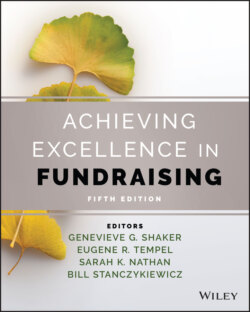Читать книгу Achieving Excellence in Fundraising - Группа авторов - Страница 46
Professional Ethics
ОглавлениеThe Association of Fundraising Professionals (AFP) fosters ethical and best practices for fundraisers through education, training, advocacy, and research. Its “Code of Ethical Standards” guides the profession today in ways that engender trust (https://afpglobal.org/ethicsmain/code-ethical-standards). The “Donor Bill of Rights” respects those whose philanthropy makes the voluntary sector viable (https://afpglobal.org/donor-bill-rights).
Fundraisers must embrace these professional principles and think critically and carefully about ethical issues. As the “consciences of the philanthropic community,” fundraisers must bring ethical courage to their work and “create communities of moral deliberation” in the organizations they serve (Pribbenow 2013, 8 and 13). While codes are guides to professional behavior (Rosen 2005), ethical fundraising is more about a right way to act than do's and don'ts. According to a 2011 AFP survey, those who routinely practice ethical fundraising share similar traits. They build trusted relationships by being honest and transparent in their dealings and communications. They are accountable for their behavior, as well as the behavior of their organizations. They embrace AFP's codes and model ethical practice, even when it is uncomfortable or unpopular. They take seriously their roles as stewards of the public trust (Pribbenow 2013).
